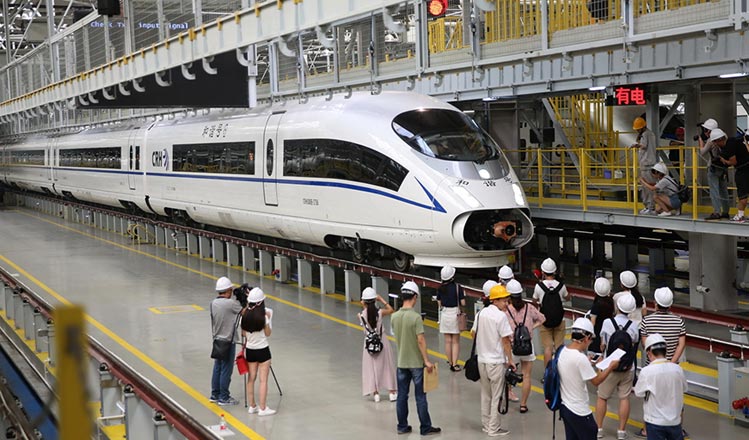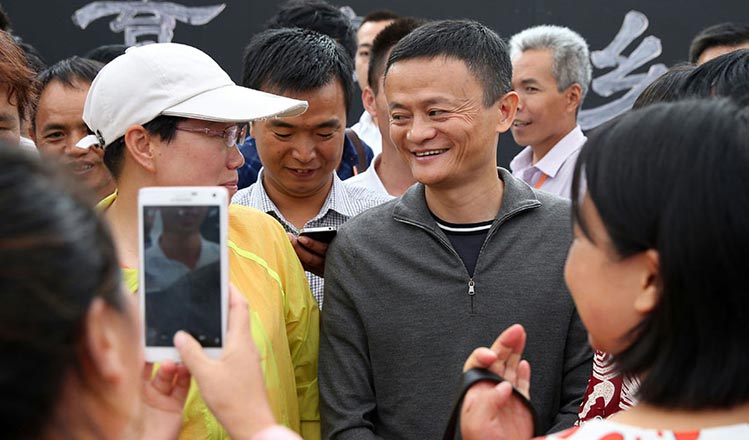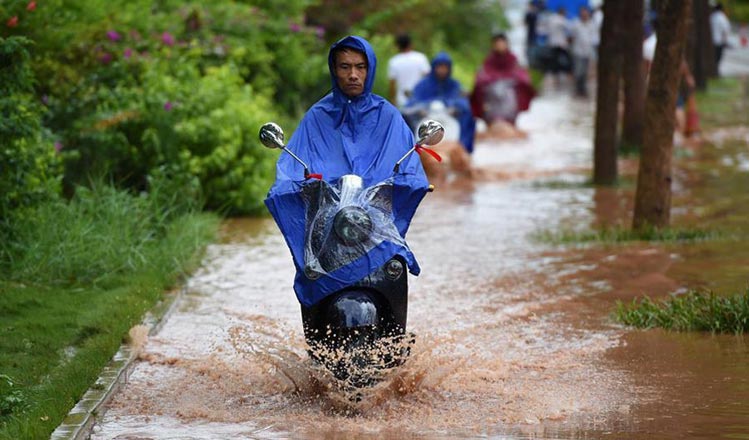Defense paper reveals Japan's pugnacity
Updated: 2016-08-05 07:57
By Li Yang(China Daily)
|
||||||||
Abe and his colleagues have garnered the support of right-wing Japanese in an attempt to whitewash Japan's militarist past, including its crimes in the Nanjing Massacre, the atrocities committed against "comfort women" and the torture of prisoners of war.
But the international community has not forgotten the facts. For the majority of the post-Meiji Restoration period that started in 1868, Japan has been a source of conflict and chaos for East Asia. Now the Abe administration has embarked on a mission to amend the pacifist Constitution, a foundation of regional peace and stability since WWII, which, if they succeed, could start another cycle of war.
Japan in recent times has been excessively officious on many issues that do not concern it, reminding one of the period before it invaded China in the 1930s. Japan is not a party to the disputes in the South China Sea, yet it has appeared more active than the Philippines in seeking support for the illegal arbitration initiated by Manila.
The freedom of navigation and overflight in the South China Sea is one excuse Japan has used to explain its concerns over the disputes, because Japan's postwar rise would not have been possible if it wouldn't have been able to import its oil and export its products through the waters. What Japan doesn't say is that the regional security and stability it has enjoyed after the war are not US gifts but the fruits of the joint efforts of its neighbors, especially China.
To win the respect of these neighbors, Japan first has to squarely face its war history and then show enough maturity to resolve burning regional issues such as the Korean Peninsula nuclear issue and the disputes in the East China Sea, instead of citing one excuse after another to strengthen its defense forces.
In his speech on the 70th anniversary of the end of WWII, Abe said Japanese need not apologize for a war that happened decades ago. But it is the political elites who should apologize for the crimes and atrocities of the Imperial Japanese Army in the 1930s and 1940s so as not to mislead the common people in Japan into believing their country was the victim rather than the perpetrator of war crimes in WWII.
In 1945, the Japanese military said the atomic bomb that destroyed Hiroshima was not that important a matter after the horrifying news reached Tokyo and declared that they would sacrifice another 100 million people to defend the "holy land". Today, we find the Abe administration moving toward a state where is likely to echo that statement.
The author is a writer with China Daily. liyang@chinadaily.com.cn
- Fire guts Emirates jet after hard landing; 1 firefighter dies
- Egypt's Nobel-laureate scientist dies of illness in US
- THAAD muscle flexing unmasks anxiety over declining hegemony
- British police say mental health a significant factor in London knife attack
- Paragliding fans fly over Rigi mountain in Switzerland
- DPRK fires 1 ballistic missile into east waters

 World's fastest bullet train to start operating next month
World's fastest bullet train to start operating next month
 Jack Ma visits rural school, meets teachers
Jack Ma visits rural school, meets teachers
 Top 8 global market leaders from China
Top 8 global market leaders from China
 After Typhoon Nida, torrential rain hits S. China
After Typhoon Nida, torrential rain hits S. China
 Serbian artist creates incredible 3-D art
Serbian artist creates incredible 3-D art
 Glimpse into the work and life of G20 guards
Glimpse into the work and life of G20 guards
 Shopping and throwing Frisbee in virtual reality
Shopping and throwing Frisbee in virtual reality
 Take a closer look at the life in Rio Olympic Village
Take a closer look at the life in Rio Olympic Village
Most Viewed
Editor's Picks

|

|

|

|

|

|
Today's Top News
US launches airstrikes against IS targets in Libya's Sirte
Ministry slams US-Korean THAAD deployment
Two police officers shot at protest in Dallas
Abe's blame game reveals his policies failing to get results
Ending wildlife trafficking must be policy priority in Asia
Effects of supply-side reform take time to be seen
Chinese State Councilor Yang Jiechi to meet Kerry
Chinese stocks surge on back of MSCI rumors
US Weekly

|

|







